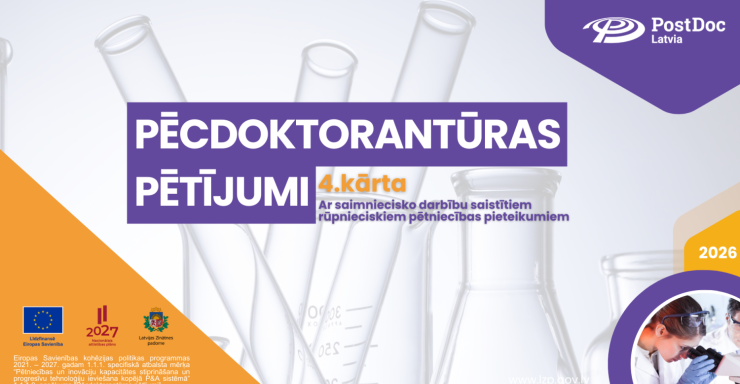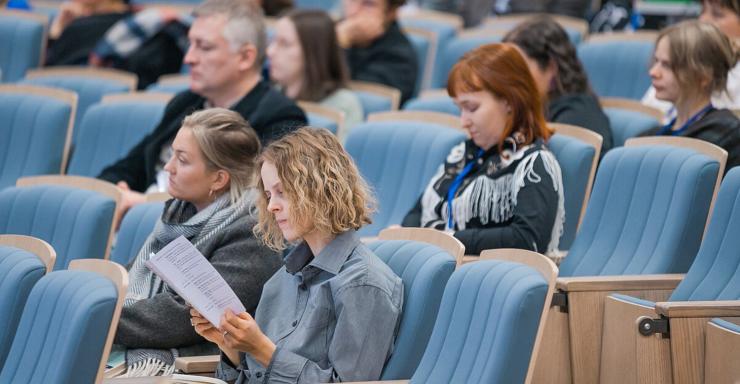Chronic conditions such as cardiovascular diseases, diabetes, oncological or chronic respiratory illnesses are not only physical challenges but also emotional ones. Nowadays, they are among the most pressing public health issues.
In the long term, chronic illnesses increase the likelihood of facing mental health challenges, such as depression, anxiety, and heightened stress. Māra Lasmane, a first-year master's student in the Health Psychology program at Riga Stradiņš University (RSU), explored in her bachelor's thesis* how spiritual practices and self-help methods can benefit patients with non-communicable (chronic) diseases. Incorporating these practices into daily life as self-help strategies can enhance well-being and improve quality of life.

Spiritual Practice and Its Connection to Health
There are various self-help methods, such as leisure activities, solitude and silence, drawing inspiration from nature, and more. One such method is spiritual practice.
What does this mean? It refers to any activity aimed at developing spirituality or gaining a spiritual experience. This includes meditation, prayer, expressing gratitude, spending time in nature, and more. Such practices can be conducted within a religious framework (attending church, synagogue, temple, praying, etc.) or independently (mindfulness, gratitude practices, etc.).
Research indicates that engaging in spiritual practices is positively linked to the psychological resilience, mental health, and well-being of individuals with chronic illnesses. These practices help reduce stress, foster a more positive outlook on life, improve sleep quality, and promote emotional balance.
What Is Spiritual Intelligence?
People who consciously engage with the dimension of spirituality often develop spiritual intelligence. David Brian King, a psychology professor at the University of British Columbia, defines spiritual intelligence as the cognitive ability to understand life's deeper, non-material values and apply them in daily life, even in challenging situations. Notably, a high level of spiritual intelligence does not necessarily imply affiliation with any religion or faith system.
It is known that individuals with higher spiritual intelligence tend to reflect more on their lives, form stronger connections with others, and find peace and purpose even in difficult times.
Moreover, those with higher spiritual intelligence can adapt more consciously to life's difficulties while maintaining emotional balance, such as when facing a disease diagnosis.
Seeing the Positive in Life Despite Illness
Māra Lasmane's study on spiritual intelligence and spiritual practices as self-help methods involved 276 respondents (ages 19–87) who reported having a chronic illness. The findings suggest a significant positive correlation between spiritual intelligence and spiritual practices, meaning that individuals with higher spiritual intelligence scores are more likely to engage in spiritual practices. Additionally, these individuals are more likely to transition from being passive participants in their illness to active participants in managing their condition through spiritual practices.
The study identified specific spiritual practices associated with higher levels of spiritual intelligence in individuals with chronic illnesses. These include religious practices such as praying for oneself and others, mind-body spiritual practices like meditation, yoga, Qigong, mindfulness practices, and gratitude/reverence practices—the latter being the most significant predictor of spiritual intelligence.
Thus, chronic patients who, despite their condition, frequently appreciate beauty in nature and people, feel deep gratitude, or experience profound reverence tend to have higher spiritual intelligence. Gratitude and reverence help individuals recognize the positive aspects of life despite illness symptoms and cope better with their condition. Engaging in these practices while facing a chronic illness can facilitate acceptance of life's challenges and foster a sense of meaning. They can also help clarify priorities, make wiser decisions, and deepen awareness of one's core values.
Spiritual Intelligence and Spiritual Practices as Self-Help Methods for Patients with Non-Communicable Diseases


